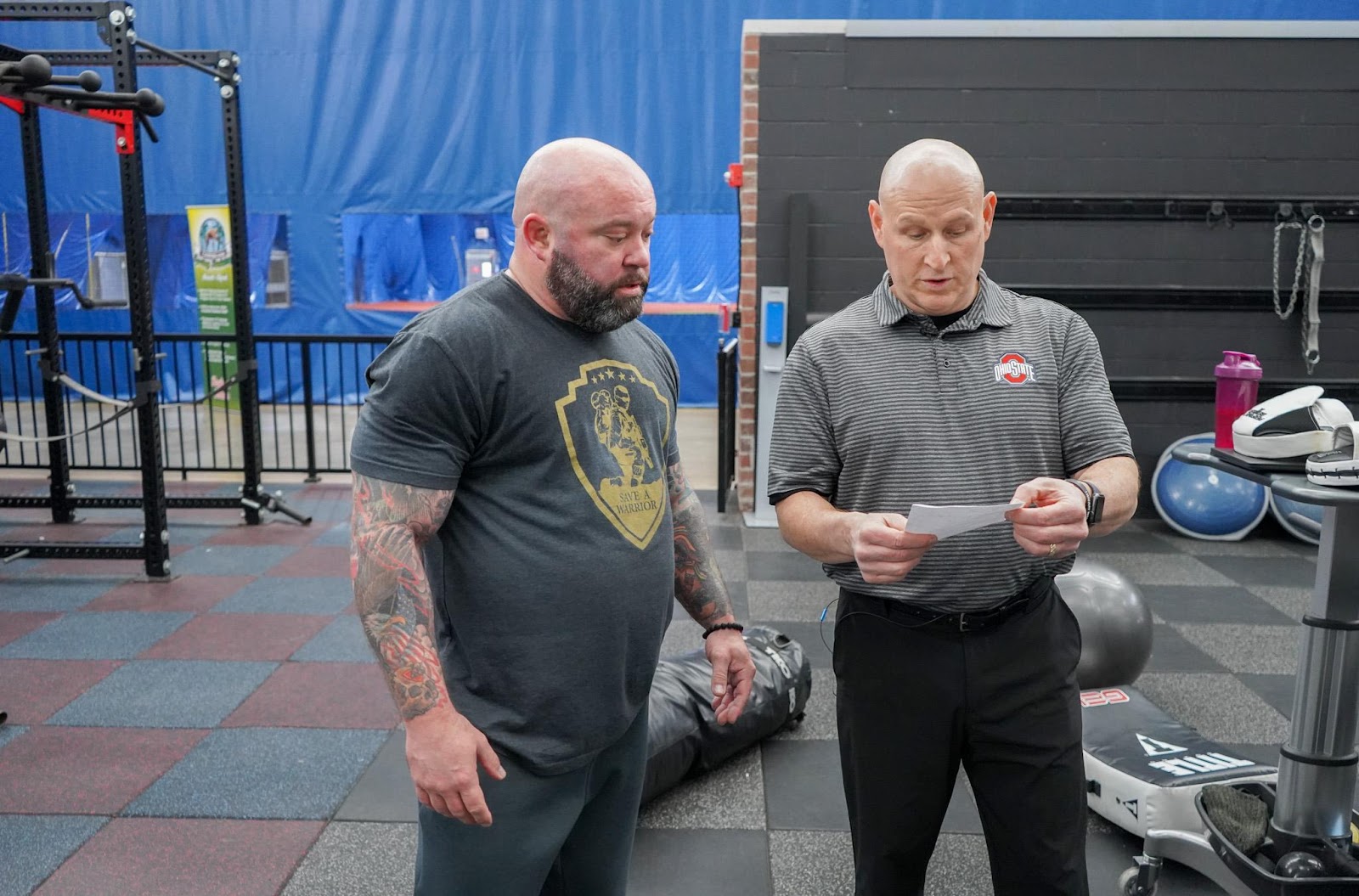(COLUMBUS, Ohio) – Elite athletes have access to world-class training to prepare their bodies for their sport. The physical demands of first responders can be just as great, yet they lack the personalized preparation needed to prevent injuries and meet the unique demands of their jobs. Now, a new program at The Ohio State University Wexner Medical Center is addressing the needs of these brave men and women to help them serve their communities as safely and effectively as possible.
“We see a lot of injuries among first responders to shoulders, knees, ankles and other areas that take a lot of wear and tear. They have very demanding jobs and can often be in life or death situations, so preparing their bodies and their minds the best we can to deal with that is extremely important,” said Chris Kolba, PhD, a physical therapist in sports medicine at Ohio State Wexner Medical Center. “To do this, we try to mimic scenarios that they often find themselves in to give them a greater ability from a strength, energy and mental standpoint to go out and do their job, which is to serve the community.”
In the gym, this translates to drills that involve lifting, climbing and carrying. By adjusting the program for individuals’ needs and job duties, physical therapists help first responders prevent injuries from happening in the first place and develop the strength, flexibility and endurance that allows them to safely lean into physical tasks and obstacles.
“That little bit of hesitation or apprehension could really be the difference between them going home at night, going to the hospital or a number of bad outcomes,” Kolba said. “They approach physical tasks a lot more confidently if they know that their shoulder, knee or back has already handled some of that load in training.”
In addition to physical therapy and training, the program provides first responders with access to nutritionists, psychologists and a number of specialists throughout their careers to protect their overall health and wellbeing. Kolba hopes to share the program with other healthcare institutions to build a model to benefit first responders across the country.
NOTE: Please use THIS LINK to direct your audience to find more information.







